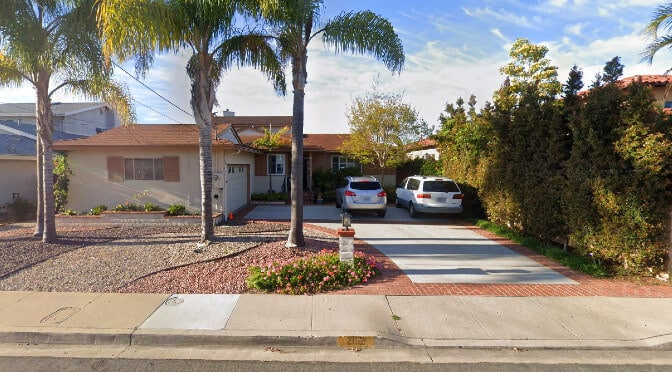
Private Mortgage Lenders: A Guide to Private Loans
In the dynamic landscape of real estate financing, the role of private mortgage lenders has become increasingly significant. As individuals and investors seek alternatives to traditional banking institutions, understanding the intricacies of private mortgage lending becomes paramount. This guide aims to shed light on various aspects, from defining what private mortgage lenders are to exploring their advantages, risks, and the process of securing a loan.
What is a private mortgage lender?
A private mortgage lender is a non-institutional entity that provides loans for real estate purchases or refinances. Compared to traditional banks and financial institutions, private mortgage lenders have far fewer regulations and requirements which allow private mortgage lenders to provide fast and flexible short-term financing.
The best private mortgage lenders are able to approval loan requests within days and then provide the funding within 5-15 days depending on the type of loan that is needed. Private mortgage lenders primarily lend for investment purpose scenarios and a smaller proportion of these lenders can also lend for consumer purpose loans (owner occupied private mortgage lenders).
How to find private mortgage lenders?
To find private mortgage lenders, a borrower should consider networking, online research, and seeking recommendations from trusted real estate professionals. Attend real estate events, explore online platforms, and connect with mortgage brokers who often have access to a network of private lenders.
Are private mortgage lenders easier to work with than traditional banks?
Private mortgage lenders can be more flexible in their lending criteria, making them potentially easier to work with, especially for borrowers with unconventional financial situations. However, private mortgage interest rates are typically higher, and terms could be less favorable compared to traditional banks. The number of requirements and paperwork are much less for private mortgage lending.
What are the advantages of using a private mortgage lender?
Advantages of private mortgage lenders include faster approval times, flexibility in terms, and the ability to finance unique properties that traditional banks may avoid. Additionally, private money lending can be more lenient with credit scores and offer more personalized service.
What are the qualifications for private mortgage financing?
Qualifications for private mortgage financing vary among lenders, but generally, they focus on the property’s value and the borrower’s ability to repay the loan (exit strategy). They will require a significant down payment or equity within the property. Credit history, income qualification will be required for any private mortgage loan that is consider consumer purpose.
How do private mortgage loans differ from conventional mortgages?
Private mortgage loans differ from conventional mortgages in terms of flexibility, speed, and criteria. Private lenders often have a faster approval process and are willing to take on higher-risk borrowers or unconventional properties that traditional banks might decline. For example, if the property condition would prevent the conventional lender from providing financing (missing flooring, lack of appliances, foundation issues, etc.), the private mortgage lender can still consider providing financing for this type of scenario.
Can I get a private mortgage with bad credit?
Yes, it’s possible to secure a private mortgage with bad credit. Private lenders may prioritize the property’s value and the potential for repayment over a borrower’s credit score, making them a viable option for individuals with less-than-perfect credit. The borrower will need to have a reasonable exit strategy for repaying the short-term private mortgage given the borrower’s current credit situation.
What is the process of getting a loan from a private mortgage lender?
The process involves discussing the loan scenario with the lender, submitting a loan application and providing information on the property. Upon approval, the lender will begin preparing the necessary loan disclosures and documents and coordinate with escrow. When escrow is ready to close the private mortgage lender will wire funds to escrow.
Are private mortgage lenders regulated?
Private mortgage lenders are generally regulated by the department of real estate in the state in which they operate. Private mortgage lenders in California must be licensed with the California Department of Real Estate. Private mortgage lenders are also regulated by various other organizations based on the specific type of loans they provide.
What are the risks associated with private mortgage loans?
The main risk of obtaining a private mortgage loan is the same as obtaining a conventional mortgage; if the loan goes into default, it will eventually be sold at a foreclosure trustee sale. Private mortgage lender’s rates are higher than conventional loans which can be seen as a risk if the borrower has a difficult time refinancing into a long-term loan.
Best private mortgage lenders
The best private mortgage lenders provide fast approvals and funding, have reasonable and competitive interest rates and are transparent about the private mortgage loan terms they are able to provide. Conduct thorough research, read reviews, and consider seeking recommendations from real estate professionals to find a reputable and reliable private lender.
Private mortgage lenders interest rates
Private mortgage interest rates are often higher than those offered by traditional banks. Rates depend on the lender’s risk assessment, borrower’s creditworthiness, and prevailing market conditions.
Pros and Cons of private mortgage lenders
Pros include flexibility, faster approval, and potential approval for unconventional scenarios and properties. Cons involve higher interest rates, shorter loan terms and a need to have a reasonable exit strategy for refinancing or paying off the private mortgage loan.
Private mortgage lenders vs banks
Private mortgage lenders and banks differ in terms of flexibility, approval processes, and risk tolerance. While private mortgage lenders may offer more personalized terms and service, banks often provide lower interest rates and more standardized loan products. Borrowers should weigh the pros and cons based on their individual needs.
Recent Private Mortgage Loans Funded by North Coast Financial
California Private Mortgage Loan Request
We will contact you to review the loan scenario and provide a quote.




